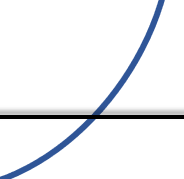Compound Startup Vs. Focus Startup - A New Way To Assess The Long Term Winners?

Rippling is another startup that we are keeping a close eye on for its speed of innovation and clear visibility to take over major industry giants in productivity, HRM, and employee & IT operation SaaS , including Workday (WDAY).
Parker Conrad is a rare personality in that he first founded a very successful HRM SaaS company, Zenefits in 2013, but quickly moved on to Rippling whereby he envisioned a more expansive & integrated platform. We are surprised by Rippling’s quick expansion of product lines while keeping the quality at a very high bar or even better than BoB point solutions.
In the interview, Conrad proposed a new concept called the Compound Startup. His thesis is sharp and outside the box. We agree with him on that switching from license software to SaaS has created too much fragmentation. And the next evolution of SaaS companies is to change from the existing super focused approach to a compounded approach whereby you should build things that customers need and offer a comprehensive platform that could make each individual solution better.
Rippling’s biggest competitor WDAY, in the rhetoric of Conrad, is an archetypical Focus Startup. WDAY’s cofounders were amongst the first to leave their previously successful license-based HRM software employer to venture into SaaS. The best practice now and then is that you should be focusing on being the best in the field and offer API for other BoB solutions to get connected and be interoperable. However, it’s very clear to us that although WDAY is a SaaS company, its core platform is aging quickly and the UX is sub-par. Furthermore, WDAY finds it harder to do TAM expansion as its genetics are aligned with a Focus Startup. We won’t be surprised if Rippling could take over WDAY and grow to 5x of WDAY if the company continues to execute well.
As public investors, we are also puzzled by the discount in BoB names like DBX. One possible reason is that BoB names like DBX who offer great point solutions have a more limited runway and their flywheel and network effect is smaller than a Compound Startup. MNDY on the other hand, seems to have a modus operandi similar to that of Rippling, and that should give investors more clarity and confidence on the company’s future execution. In our opinion, PANW, FTNT, NET, DDOG, and PLTR are also great examples of a Compound Startup - they should be able to generate durable growth and create more Wall Street beats as investors are currently pricing-in higher growth decay without knowing the power of the Compound Startup type of software company.
